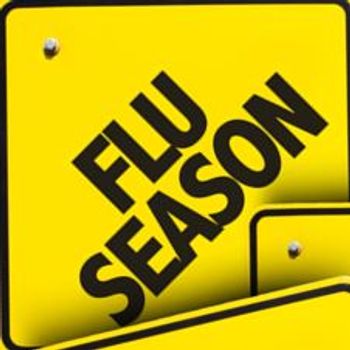
Expert Opinions On How To Increase Patient Education Surrounding Influenza Vaccination
A panel of experts in vaccination uptake strategies discuss their best practices for empowering their patients to obtain flu vaccines and discuss how to personalize these conversations.
Episodes in this series

John Russell, MD, FAAFP: So, Chuck, how about a personal recommendation from you? Does that help?
Charles Vega, MD, FAAFP: Yeah. I think you should get your flu shot, John. So, there you go. No, but I would say that you're right. You do want to make it personal, so I get your drift. I don't cite the CDC [Centers for Disease Control and Prevention] says this and ACIP [Advisory Committee on Immunizations Practices] says that. It's really about, you know, I get my flu vaccine, my family gets the flu vaccine, my kids, I recommend to my mother. And I'm recommending it for you because it can keep you well. We don't know what the next flu season is going to bring. There has been concern with lower levels of flu that, that we will have folks who have a more severe illness due to influenza because they haven't been protected and rates of vaccination have been down. But, really, just trying to make it personal and it starts with a good relationship between patient and their provider. I think it also comes down to just that sense of trust, particularly when you look at more marginalized populations. That's what they really want out of their health care professional. And, so, we really have to think about that as a core foundation for getting vaccines in arms.
Wendy Wright, DNP, ANP-BC, FNP-BC, FAANP, FAAN, FNAP: John, can I piggyback on that and just say just 2 quick statistics, old study on flu, when patients come in with a negative attitude and no one says, “Hey, I recommend you get your flu shot today,” about 28% walk out the door getting it. If they come in with a negative attitude and their provider says, “Listen, you're due for your flu shot, it's really important to get it. I recommend you get it.” Almost 80% walk out with the flu shot. The last statistic I want to bring up is, I think the literature is also clear about the importance of having a primary care provider. Studies have really shown that when patients have a relationship with a primary care provider, they're much more likely to be vaccinated. And that is true in almost every community in the country, including those that are marginalized.
Transcript is AI-generated and edited for clarity and readability.
Newsletter
Enhance your clinical practice with the Patient Care newsletter, offering the latest evidence-based guidelines, diagnostic insights, and treatment strategies for primary care physicians.

































































































































